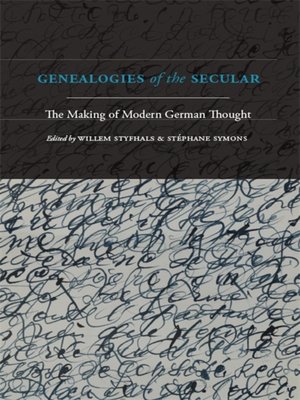Genealogies of the Secular
ebook ∣ The Making of Modern German Thought · SUNY series in Theology and Continental Thought
By Willem Styfhals

Sign up to save your library
With an OverDrive account, you can save your favorite libraries for at-a-glance information about availability. Find out more about OverDrive accounts.
Find this title in Libby, the library reading app by OverDrive.



Search for a digital library with this title
Title found at these libraries:
| Loading... |
While the concept of secularization is traditionally used to define the nature of modern culture, and sometimes to uncover the theological origins of secular modernity, its validity is being questioned ever more radically today. Genealogies of the Secular returns to the historical, intellectual, and philosophical roots of this concept in the twentieth-century German debates on religion and modernity, and presents a wide range of strategies that German thinkers have applied to apprehend the connection between religion and secularism. In fundamentally heterogeneous ways, these strategies all developed "genealogies of the secular" by tracing modern phenomena back to their religious or theological roots. This book aims to disclose the complex prehistory of the contemporary debates on political theology and postsecularism, and to show how prominent thinkers continue this German tradition today. It explores and assesses the classic theories of secularization that are epitomized in Carl Schmitt's writings on political theology, but also addresses German philosophers whose work has been rarely associated with secularization, including Walter Benjamin, Ernst Cassirer, Martin Heidegger, Immanuel Kant, and Hannah Arendt. Attention is also paid to two thinkers whose role in these discourses has not been fully explored yet: Jacob Taubes and Jan Assmann. By introducing their thinking on religion, politics, and secularization, the book also makes two of their own key texts available to an English-language readership.






